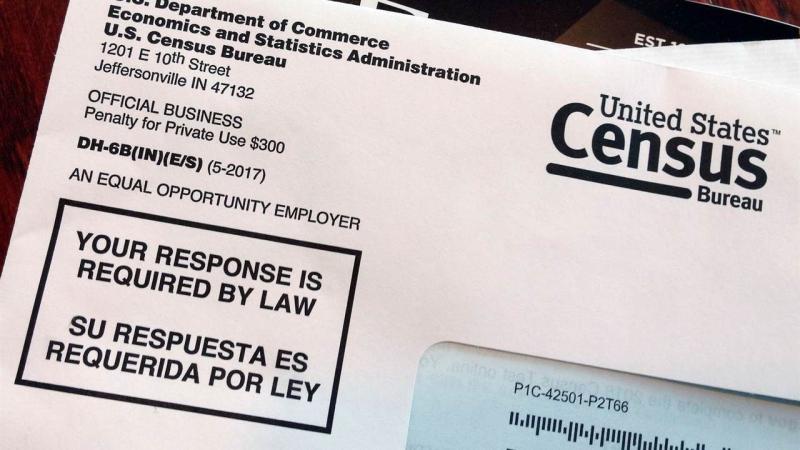Here's How the 2020 Census Results Are Shaking Up the Congressional Map by Spencer Brown



The United States Census Bureau announced the results of its decennial count of the American population Monday afternoon. According to census officials, the United States counted 331,449,281 among its population, an increase of 7.4% since the last census was conducted in 2010.
The first results of the #2020Census are in! Watch our live virtual news conference here: https://t.co/RHvocjkXow#Apportionment#CensusBureaupic.twitter.com/DcpOkjbwz8
— U.S. Census Bureau (@uscensusbureau) April 26, 2021
The U.S. population growth from 2010 to 2020 is less than the previous 10-year period that saw a 9.7% increase between 2000 to 2010. Regionally, the South grew the most with 10.2% growth from 2010 to 2020, while the West grew 9.2%, the Northeast grew 4.1%, and the Midwest grew 3.1%. Utah was the fastest-growing state with an 18.4% increase while West Virginia showed the largest rate of decrease at -3.2%.
In addition to seeing population movements, the census also decides apportionment, the process of determining how many members each state is represented by in the U.S. House of Representatives.
As a result of the 2020 count, a total of seven congressional seats will be shifting among 13 different states, according to the U.S. Census Bureau—the smallest number of seats shifting among the states in any decade since 1941.
Texas gains two congressional seats, while Colorado, Florida, Montana, North Carolina, and Oregon each gain one seat. The shift means that California, Illinois, Michigan, New York, Ohio, Pennsylvania, and West Virginia will each lose one House seat.
In response to a question during Monday's briefing, census officials revealed that if just 89 more individuals had been counted in New York while the data from other states remained constant, the Empire State would not have lost any congressional seats in the apportionment process.
The Census Bureau just released the first #2020Census results, which included the number of seats each state will have in the U.S. House of Representatives. Here are the results ?? https://t.co/RHvocjkXow#Apportionment#CensusBureaupic.twitter.com/2QuyrHccDJ
— U.S. Census Bureau (@uscensusbureau) April 26, 2021
Even though California loses one seat as a result of the 2020 census, it remains the state sending the most members to the U.S. House with 52 seats, followed by Texas (38 seats), Florida (28 seats), and New York (26 seats).
Recommended A Rigged System Can't Last Kurt Schlichter
Each member of the U.S. House will represent an average of 761,169 people following reapportionment, an increase of about 50,000 constituents for each member of congress over the 2010 census average.
The apportionment data revealed Monday decides the nation's congressional map until the next census is conducted a decade from now, with the new map impacting the 2022 midterm elections as well as the number of electoral college votes each state will cast in the 2024 presidential election.



Texas gains two congressional seats, while Colorado, Florida, Montana, North Carolina, and Oregon each gain one seat. The shift means that California, Illinois, Michigan, New York, Ohio, Pennsylvania, and West Virginia will each lose one House seat.
People also vote with their feet.
Hopefully, people moving from states that are losing representatives will look at what they have voted for in the past and change the way and who they vote for so their new states don't end up with the same policies they are fleeing from.
One can only hope. There is a mass migration of AMERICANS to Texas & Florida.
Not likely. Many who left California did so intentionally to export progressive common sense and turn a lot of purple States like Texas blue.
" Texas is trending younger and more racially diverse, contributing factors to an increase of support for Democrats. Some political experts also say Republican voting numbers are plateauing while voter registration among Democrats is steadily growing."
Then they will turn their new states into their old ones. Seems very smart......dumb fucking asses!
THTA is one stupid reason for sane people to move.
ACTUALLY, most people move because of jobs and cost of living.
No need to pretend otherwise.
One can hope but I doubt it will happen that way. Look at how Houston is changing. People used to move to AZ for among other things asthma. But then they brought their plants and trees and grasses along and now pollen counts are as high as the midwest.
Or WEATHER! Especially after retirement. People in the northern Midwest usually are there for work, because of the industry, but loathe the weather; therefore, move south for less winter, more warmth. Personally, I'd rather not have the humidity. I'd say I really loved Nevada, but now that I'm starting to get hot flashes and night sweats, I don't know if I want to go quite that warm now.
Well, that's disheartening. My allergies are INSANE right now. Stupid trees having sex! It's expensive this time of year for me... Allegra [fexofenadine] is the only thing that works for me; it used to be a prescription and I wish it still were. Instead of paying a copay of $15, now it costs me double that every 15-30 days. And that's only if I get the stuff without the decongestant! If I get the stuff from behind the pharmacy counter [stupid drug chemists making meth], I have to pay damned near $40 every 15-30 days!!! My kids have similar allergies, that's why I said 15-30 days.
ahhh, don't worry about it. It's a dry heat. /snark
During that trip, it never was below 100°F, even at night. The first night it only got down to 110°F. I cranked that A/C in my room.
LOL yea that makes since. ... sarc
People are leaving and have been leaving California for many years mainly because california is too damn expensive to live there.
Many come here to Phoenix and have for many years.
And IMO: way too many Americans of both parties have very little common since.
Just look at the marijuana laws compared to the deadly alcohol and tobacco laws.
Deadly alcohol and tobacco are sold at every convenience store across America killing thousands of Americans for decades meanwhile a alternative marijuana has been illegal until not long ago everywhere in this country. That's a true DUuu in my book.
No way that is operating out of common sense and it has cost many good Americans their life.
Gee, maybe taxing the hell out of the wealthy DID have an effect after all.
Ya, what a shame!
Tex, the silence will be deafening.
The biggest cause of the population slowdown is the declining birthrate. Today, the average American adult of child-rearing age has 17 percent fewer children than in 1990 — and about 50 percent fewer than in 1960. The U.S. still has a higher fertility rate than Japan and Germany, but it is in the same range as Britain and Sweden and below France and Ireland. There are now more Americans 80 and older than 2 or younger.
There are some advantages to slower population growth. A lower birthrate can expand the economic opportunities for women, especially because the U.S. has relatively flimsy child care programs . Historically, birthrates have declined as societies become more educated and wealthier .
Lower levels of immigration can also have upsides. The big wage gains for American workers during the mid-20th century had many causes, including strong labor unions, rising educational attainment and high tax rates on top incomes. But the tight immigration restrictions of that period also played a role.
The amount of kids in the earlier years of the US were high for several reasons though... chances of 14 kids all surviving past the age of 2 was much slimmer. People also didn't have birth control. They also had a need to have a lot of kids to "work the farms" in many instances as well. While I'm sure that higher education and wealth are partial factors, the fact remains that with modern technology and medicine, it's unnecessary to have a large family today. Hell, it's far too expensive to have a large family today.
The skills necessary today to make a living and raising a family are also not the same as what was necessary in the 1700s through early 1900s. Learning how to code is more important today than making one's own clothes, for example. Don't get me wrong... there's still importance in many things that were important back then, but it doesn't hold the same importance as it once did.
I'd like to add to that the change in lifestyle. How much did the "pill" have to do with creating the option of not having children?
Right... like I said, birth control unavailable. Birth control pills hadn't been available to the public until 1960.
So the world is going through an enormous demographic change. The final epilogue for the west may be that they adequately civilized their replacements. We can only hope.